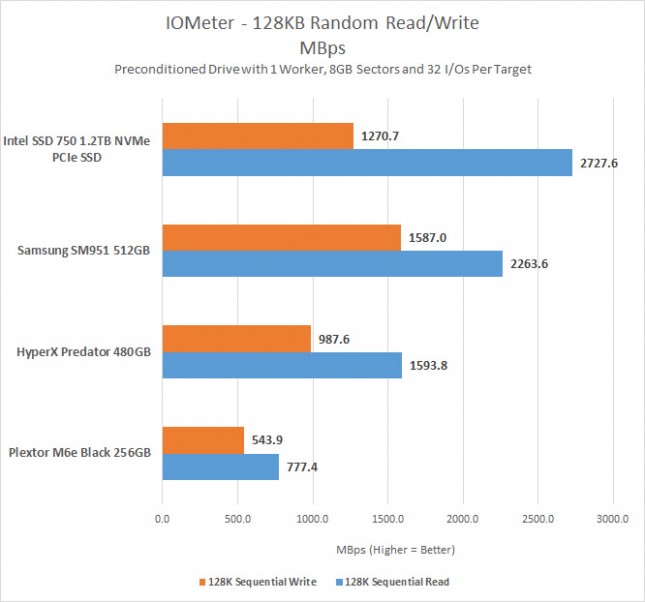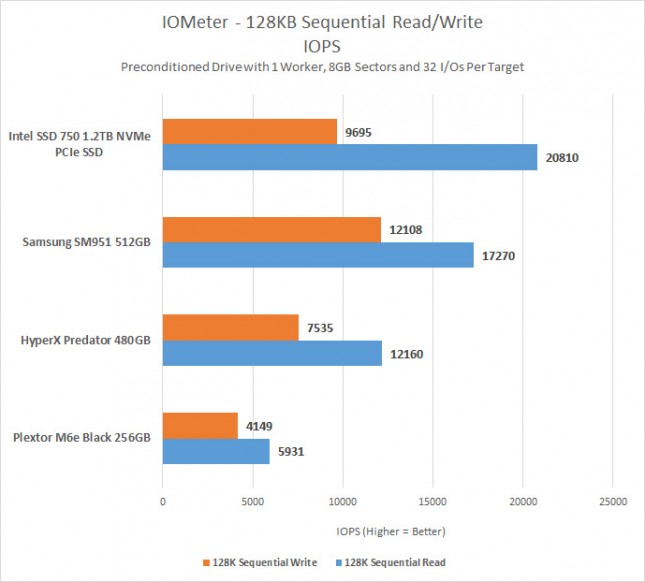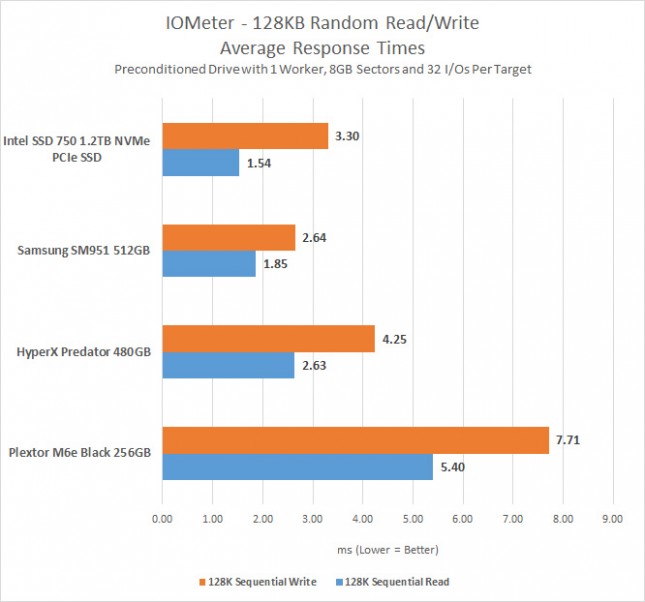Intel SSD 750 NVMe PCIe SSD Review
IOMeter Sequential Performance
Starting here in April 2015 Legit Reviews has brought ack synthetic IOMeter v1.1.0 testing to our high-end Solid-State Drive reviews as we feel that the canned benchmarks no longer show enough of the performance picture nor do they expose many of the heat issues that we are starting to encounter on M.2 PCIe SSDs. We start out testing each drive with IOMeter, but first we prepare the drive. This is done by using Parted Magic to complete a full Secure Erase each and every drive. Next we use IOMeter to prefill the drive by performing the industry standard 128KB, aligned, sequential write workload across the entire drive for a period of 20 minutes. Once the drive is conditioned we run our saved sequential test profile that runs our 128KB test for two minutes without any idle time in between the tests. The queue depth is set to 32 as we feel with NVMe drives starting to come out that we need to increase our IO depth.
The 128KB Sequential Read/Write test is done primarily to make sure the drives we are testing meet or surpass the manufacturer specifications for sequential Read/Write performance. The Intel SSD 750 1.2TB drive is rated at 2,400 MB/s sequential read and 1,200 MB/s sequential write. We were able to get the drive to top out at 2,727 MB/s read and 1,270 MB/s write, which actually exceeds the factory specifications!
For those that like to know the IOPS results you are looking at 20,800 IOPS on the sequential read and 9,700 IOPS on the sequential write.
Having high IOPs per second is generally considered good, but you also look at the latency when interpreting the results. Just because the IOPs are high it might not mean that the data is being delivered at a reasonable latency and this could cause for a poor user experience. Most enthusiasts and storage aficionados consider anything under 5ms to be good and you will end up with a good user experience. As you can see the Intel SSD 750 1.2TB drive has respectable times, but they are slightly higher than what we saw on the Samsung SM951.



